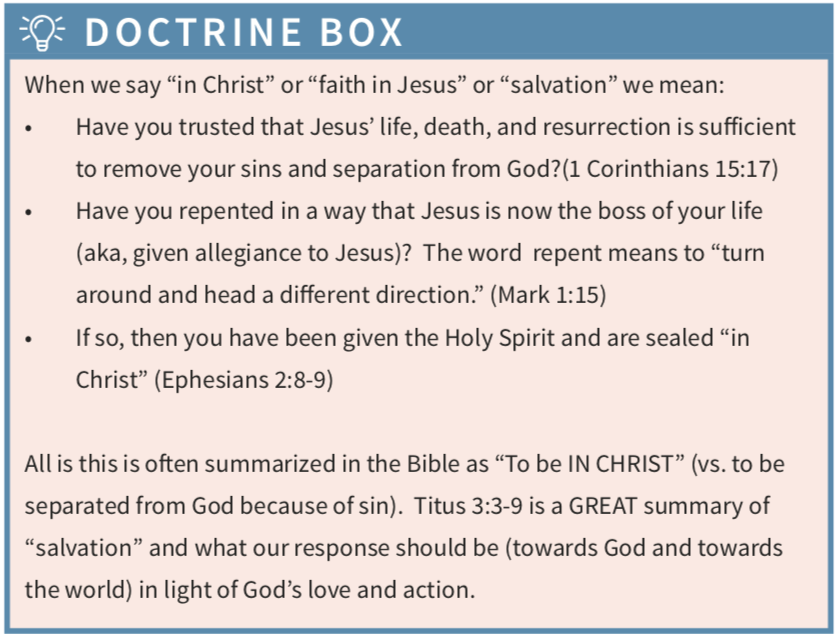We heard Keith speak yesterday on genuine knowing of the Father. 1 John 1:3 tells us that our fellowship is with the Father and the Son. This fellowship is unique for us as believers because of the gift of the Holy Spirit. As He indwells in someone who has “trusted in Jesus” (see doctrine box), He does many remarkable and predictable things in each of our lives. We are going to spend this week rooted in John’s Gospel listening to Jesus’ description of what the Holy Spirit is doing and providing for each of us!
Conversely, if you have not “trusted in Jesus,” the Holy Spirit does not indwell you and is not doing this work. Because you are sitting here, you’ve heard that Jesus wants a relationship with you personally. Consider KNOWING Him.

Stop, pray, and ask the Holy Spirit to speak to you from the text. Ask Him to help you engage with your mind and your heart. Remind yourself you are in God’s presence and read the passage; notice how God might be speaking to you through His Word.
Read John 14:1-20
If you peruse the previous chapter(s) of John’s Gospel, you see thatJesus told the disciples some hard things: He is going to die, He is going to be betrayed, and that He is going away.
He then says “Don’t let your hearts be troubled…”
- As you think about the transition for them in losing Jesus’ physical presence, what kinds of things do you think would “trouble” them?
- What are the ways/phrases/truths Jesus uses to comfort them?
- What are some things you learn about Jesus’ character from this passage?
Imagine the pain expressed in verse 18 in suddenly becoming an orphan. Confusion. Pain. Fear. Immobilization. We picture children inthis situation and it is gut wrenching. But even as adults, we cling tobeing a part of a family. We can feel adrift without the sense of belonging that comes from a common last name.
- How has Jesus communicated “belonging” to your heart through this passage?
